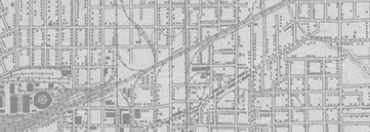


Back
Jack Ruby's copy of the "Welcome Mr. Kennedy" anti-Kennedy ad
Jack Ruby's copy of the full-page ad titled "Welcome Mr. Kennedy" from the Dallas Morning News dated Friday, November 22, 1963, placed by the American Fact-Finding Committee, Bernard Weissman, Chairman. Ruby's copy of the ad was found in his car at the time of his arrest for shooting Lee Harvey Oswald on November 24, 1963.This object was originally part of the evidence collected by the Dallas County District Attorney’s Office and specifically prosecutors Henry Wade and Bill Alexander during the investigation leading up to the Jack Ruby trial for the murder of Lee Harvey Oswald.
Jack Ruby's copy of the "Welcome Mr. Kennedy" anti-Kennedy ad
11/22/1963
Newsprint
22 11/16 × 16 7/16 in. (57.6 × 41.8 cm)
Loaned Courtesy the Dallas County District Attorney's Office/The Sixth Floor Museum at Dealey Plaza
L2017.1.100
This particular copy of the "Welcome Mr. Kennedy" ad is important because it belonged to Jack Ruby and was found in his car after he was arrested for shooting Oswald. Some have wondered if the fact that he kept the ad was an indication of Ruby's mental state after the assassination. The Museum also has a copy of this ad in its collection. See record 2004.058.0017 for more information. - Lindsey Richardson, Curator of Collections
This infamous full-page advertisement was signed by the American Fact-Finding Committee, chaired by Bernard Weissman. In reality, there was no organization called the American Fact-Finding Committee, though Bernard Weissman and his associates did write the content of this ad, which was paid for by several Dallas-area conservative businessmen. Weissman at the time was part of a small "secret" group called Conservatism USA, whose main objective was to infiltrate other right-wing organizations and ultimately bring all of those organizations under one umbrella organization (that Weissman and his other young associates would lead). Conservatism USA broke up almost immediately after the assassination.Jack Ruby may have been particularly disturbed by this advertisement since Weissman is a Jewish name. Weissman recognized (and relished) the potential controversy that a Jewish name on an ultra-conservative, anti-Kennedy advertisement would create. "I reveled in that kind of stuff," said Weissman in his oral history, recorded with the Museum in 2016. Interestingly, considering the anti-Semitism prominent in ultraconservative organizations at that time, one of Weissman's friends had earlier suggested that he change his name. Weissman refused and considered this ad a great opportunity to promote himself as a political activist. Naturally, he instantly regretted using his name on the ad when the assassination occurred on the same day it appeared in The Dallas Morning News. - Stephen Fagin, Curator
This item, along with materials from the DA's Ruby file (which is on loan to the Museum) and from the Museum's permanent collection, briefly appeared in a temporary display on the Museum's seventh floor in 2017. - Lindsey Richardson, Curator of Collections
Jack Ruby's copy of the "Welcome Mr. Kennedy" anti-Kennedy ad
Jack Ruby's copy of the full-page ad titled "Welcome Mr. Kennedy" from the Dallas Morning News dated Friday, November 22, 1963, placed by the American Fact-Finding Committee, Bernard Weissman, Chairman. Ruby's copy of the ad was found in his car at the time of his arrest for shooting Lee Harvey Oswald on November 24, 1963.This object was originally part of the evidence collected by the Dallas County District Attorney’s Office and specifically prosecutors Henry Wade and Bill Alexander during the investigation leading up to the Jack Ruby trial for the murder of Lee Harvey Oswald.
Jack Ruby's copy of the "Welcome Mr. Kennedy" anti-Kennedy ad
11/22/1963
Jack Ruby trial
DA's Ruby file
Newspapers
Ruby, Jack
Weissman, Bernard
Dallas County District Attorney's Office
The Dallas Morning News
American Fact-Finding Committee
Dallas
Newsprint
22 11/16 × 16 7/16 in. (57.6 × 41.8 cm)
Loaned Courtesy the Dallas County District Attorney's Office/The Sixth Floor Museum at Dealey Plaza
L2017.1.100
This particular copy of the "Welcome Mr. Kennedy" ad is important because it belonged to Jack Ruby and was found in his car after he was arrested for shooting Oswald. Some have wondered if the fact that he kept the ad was an indication of Ruby's mental state after the assassination. The Museum also has a copy of this ad in its collection. See record 2004.058.0017 for more information. - Lindsey Richardson, Curator of Collections
This infamous full-page advertisement was signed by the American Fact-Finding Committee, chaired by Bernard Weissman. In reality, there was no organization called the American Fact-Finding Committee, though Bernard Weissman and his associates did write the content of this ad, which was paid for by several Dallas-area conservative businessmen. Weissman at the time was part of a small "secret" group called Conservatism USA, whose main objective was to infiltrate other right-wing organizations and ultimately bring all of those organizations under one umbrella organization (that Weissman and his other young associates would lead). Conservatism USA broke up almost immediately after the assassination.Jack Ruby may have been particularly disturbed by this advertisement since Weissman is a Jewish name. Weissman recognized (and relished) the potential controversy that a Jewish name on an ultra-conservative, anti-Kennedy advertisement would create. "I reveled in that kind of stuff," said Weissman in his oral history, recorded with the Museum in 2016. Interestingly, considering the anti-Semitism prominent in ultraconservative organizations at that time, one of Weissman's friends had earlier suggested that he change his name. Weissman refused and considered this ad a great opportunity to promote himself as a political activist. Naturally, he instantly regretted using his name on the ad when the assassination occurred on the same day it appeared in The Dallas Morning News. - Stephen Fagin, Curator
This item, along with materials from the DA's Ruby file (which is on loan to the Museum) and from the Museum's permanent collection, briefly appeared in a temporary display on the Museum's seventh floor in 2017. - Lindsey Richardson, Curator of Collections









